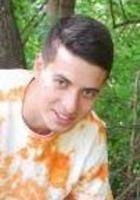Connect with hundreds of tutors like Natasha
America's #1 Tutoring Platform
Who needs tutoring?
FEATURED BY
TUTORS FROM
- YaleUniversity
- PrincetonUniversity
- StanfordUniversity
- CornellUniversity

Natasha
Bachelors, Secondary Education/Math
Harris-Stowe State University
About Me
Hi, I'm a high school mathematics teacher. I believe all students can learn with the right support. I believe this is true because of my 10 years of teaching experience in a classroom. I've taught high school mathematics for the last 8 years. I've been tutoring for the last 15 years. I've tutored students of all ages in phonics, mathematics, and even adults studying for their GED. I love to teach and break things down so that students can understand. I have a lot of experience with different learning styles. I would love to work with and help you.
Education & Certifications
Harris-Stowe State University
Bachelors, Secondary Education/Math
Q&A with Natasha
All students can learn.
Tutoring Subjects
Connect with a tutor like Natasha
Connect with a tutor like Natasha
Tutors with Similar Experience


